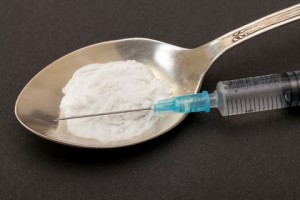Kacie’s Cause: Heroin Addiction Can Strike Anyone
 Kacie Rumsford was 23 years old when she overdosed on heroin in her parents’ bedroom. Her parents were unaware of her addiction issues. Kacie had a black belt in karate, was a cheerleader, played sports and had an extremely high IQ. Though they can look back now and identify the signs that something was wrong, they cannot stop wondering how things might have been different if they had known what they were seeing and been able to intervene.
Kacie Rumsford was 23 years old when she overdosed on heroin in her parents’ bedroom. Her parents were unaware of her addiction issues. Kacie had a black belt in karate, was a cheerleader, played sports and had an extremely high IQ. Though they can look back now and identify the signs that something was wrong, they cannot stop wondering how things might have been different if they had known what they were seeing and been able to intervene.
What Does a Heroin Addiction Look Like?
There are a number of signs that heroin abuse or addiction is an issue in someone you love – some blatant, some seemingly innocuous. These include:
- Struggling with insomnia but always seeming to be tired
- Issues with memory, racing thoughts, and bouts of anxiety
- Not eating for days at a time
- Constipation
- Being unable to perform well at work or school despite high intelligence or capability
- Lying
- Stealing money
- Showing track marks or developing abscesses
Kacie’s parents knew for sure that she had abused heroin on occasion when she developed a large abscess on her arm. After her surgery, she promised never to use the drug again. Today, they have started an organization to help other parents avoid losing their children to drug abuse and addiction as they did.
Promises That Can’t be Kept
Addiction is a medical disorder and addiction to heroin is one of the most difficult to escape. Even the addicts who sincerely want to quit and want more than anything to remain drug-free find it impossible to do so without medical and psychotherapeutic assistance. Cravings are even more difficult to get through without relapse than withdrawal symptoms associated with physical detox – and the physical withdrawal symptoms are fierce.
If your loved one is struggling with heroin abuse, the best way to help them avoid overdose is to enroll them in an drug rehab that will be able to provide them with:
- Medical treatment for withdrawal symptoms as well as medical problems caused by drug use
- Education that enables them to understand how their drug of choice and addiction changes the brain and the body
- Personal counseling to help them address underlying issues of anxiety, depression, trauma
- Treatment for co-occurring mental health disorders, if necessary
- Family therapy to help mend broken relationships at home
- Aftercare services that offer ongoing support as they learn to live a life without drugs and alcohol
The more intensive and comprehensive your loved one’s treatment, the more likely it is that they will be successful in recovery. Contact us today at the phone number listed above and speak to a counselor here at Orchid Recovery Center now.
